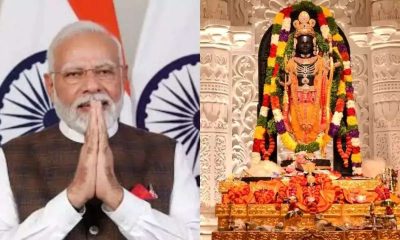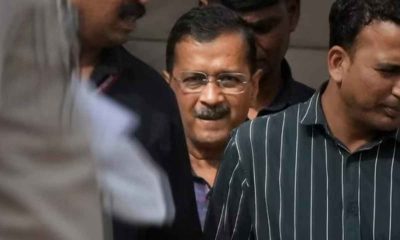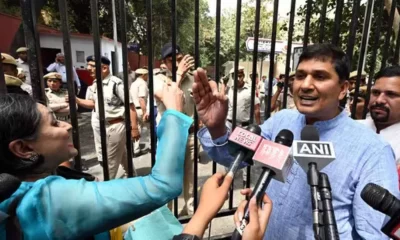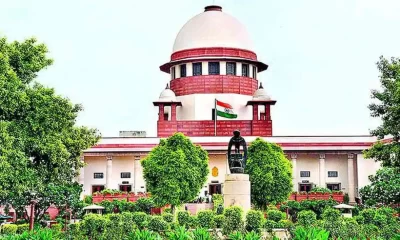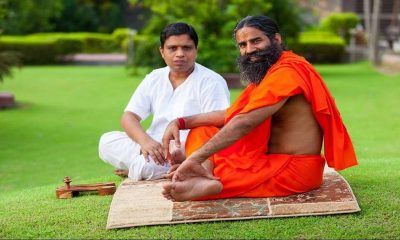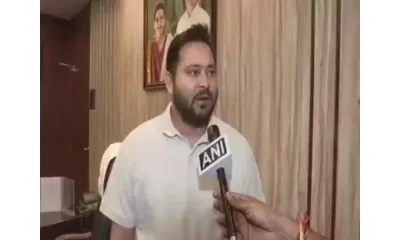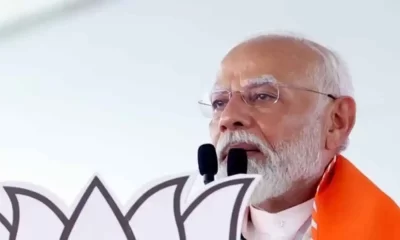India News
Ismail Faruqui verdict won’t affect Ayodhya tile suit outcome, rules Supreme Court
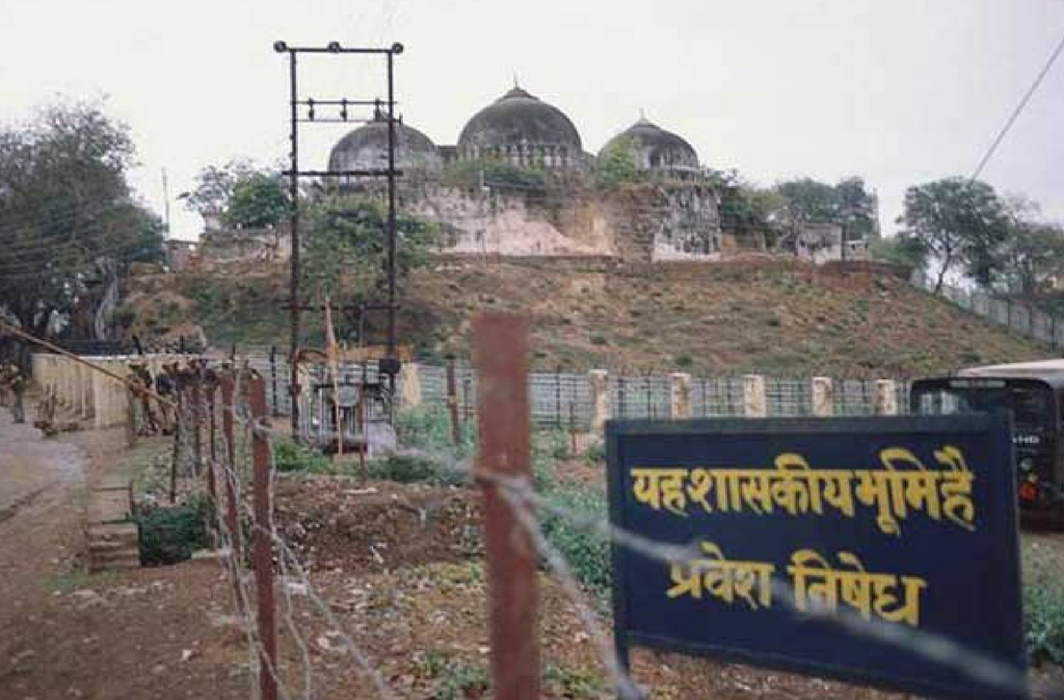
A three-judge bench of the Supreme Court, headed by Chief Justice Dipak Misra, today (Thursday,September 27), ruling that the Ismail Faruqui verdict in 1994 – that mosques are not integral to Islam – will not affect a decision on the Ayodhya title suit and refused to refer it to a larger bench for further clarification.
The judgment was delivered by a Bench of Chief Justice Dipak Misra and Justices Ashok Bhushan and S Abdul Nazeer.
Justice Bhushan wrote one judgment on behalf of himself and CJI Misra. Justice Nazeer wrote a dissenting judgment.
The Ismail Faruqui verdict, delivered by a Constitution Bench, had been challenged by a bunch of Muslim outfits during proceedings in the Babri Masjid Ram Janmbhoomi title suit. They had argued that the Faruqui case verdict – that mosques are not integral to Islam and thus not a prerequisite for offering namaz – was too “sweeping” and could influence the verdict in the Ram Janmabhoomi land dispute.
In the 2-1 verdict, Chief Justice Dipak Misra and Justice Bhushan held that there was no need to refer the Ismail Faruqui verdict to a larger bench.
The statement in Faruqui case was in the limited context of immunity claimed by the petitioners for the mosque from acquisition, Justice Bhushan said, adding that “it need not be read broadly to mean mosque can never be essential to practise of Islam”.
“The present case shall be decided on its own facts, the Ismail Farooqui judgment would have no impact on it,” Justice Bhushan added.
Justice Nazeer gave a dissenting opinion, stating that whether a mosque is integral to Islam or not is a matter that requires to be considered by a Constitution Bench. He said “questionable observations” in Faruqui ruling were “arrived at without undertaking comprehensive examination” and ‘have permeated” the judgement in the main Ayodhya title suit. He further stated that it needs to be brought in line with the Shirur mutt case. The next hearing has been slated for October 29.
The Ismail Faruqui verdict, 1994
Months after the demolition of the Babri Masjid in Ayodhya in December 1992 by Hindu radicals supported by the RSS-BJP combine, the Congress-led central government enacted the Acquisition of Certain Area at Ayodhya Act, 1993. A year later, in October 1994, a five-judge bench of the top court had, in the M Ismail Faruqui Vs. Union of India case, upheld the validity of the Act, vesting jurisdiction of the disputed land in Ayodhya to the Centre.
The fine print of the top court’s verdict, however, gave rise to a new legal conundrum that could, it was argued, be a critical legal precedent that has the potential of determining which way the judgment in the Babri Masjid-Ram Janmbhoomi title suit could go.
As reported by India Legal, Paragraph 82 of the Ismail Faruqui verdict states: “there can be no reason to hold that a mosque has a unique or special status”. The interpretation of this line has been taken, especially by the Hindu right that wants control of the disputed land to build a Ram Mandir, to be that the presence of a mosque was not a prerequisite for Muslims to offer namaz.
Additionally, it meant that the government was free to acquire the disputed land on which the Babri Masjid once stood and that a mosque – irrespective of its heritage value or the significance and faith attached to it by the Muslims – held no importance in Islam.
Several Muslims groups who are now party to the long running Babri Masjid-Ram Janmbhoomi title suit had petitioned the Supreme Court to review the Ismail Faruqui verdict on grounds that its reference to the irrelevance of a mosque for offering namaz was a “sweeping observation” and needed reconsideration as “it will have a bearing” on the final outcome of the land dispute.
The Uttar Pradesh government, along with Hindu outfits that are party to the title suit, have opposed the petitions that seek referring Ismail Faruqui to a larger bench. Their resistance is based on the argument that the Muslim outfits were raising the matter belatedly – nearly 25 years after the Ismail Faruqui verdict was delivered – with the sole purpose of delaying the judgment in the land dispute.
Among the arguments, made by counsels for the UP government and the Hindu outfits placing reliance on Ismail Faruqui, is that while the birthplace of Lord Ram cannot be shifted to another site, a mosque with no particular religious significance to the Muslims can be shifted as doing so will “not affect the right to practice religion by offering ‘namaz’ in other mosques”.
Countering these arguments, senior advocate Rajeev Dhavan, appearing for some Muslim petitioners in the title suit, had told the Supreme Court that the Ismail Faruqui verdict had failed to take note of the two critical issues – one, that the idols of Ram Lalla were placed in the disputed premises through an illegal act of trespass and two, the 1986 order by the Rajiv Gandhi-led central government to open the locks of the Babri Masjid premises and allowing the shilanyas was based was on the plea of a person who was not a party in the case and should not have been entertained. Dhavan had also submitted that the Ismail Faruqui verdict was “bad in law” as it denied members of one religious community their fundamental right to the freedom of practicing their religion while upholding the same right for the members of another faith.
2024 Lok Sabha Elections
Rahul Gandhi says BJP will not get more than 150 seats in Lok Sabha elections
Congress leader Rahul Gandhi said these BJP people are saying that they will secure this many or that many seats and but he wanted to make it clear that BJP will not get more than 150 seats.
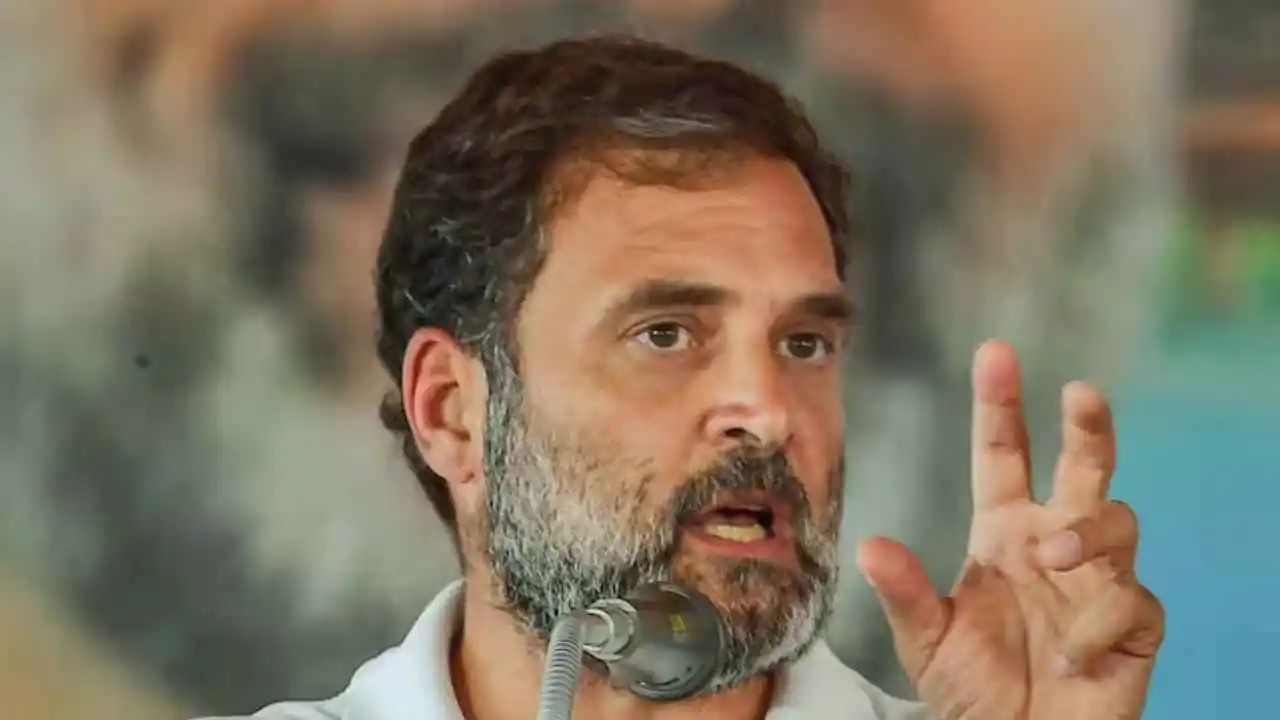
With completion of the first phase of the Lok Sabha elections yesterday, the stage is set for the 2nd phase of the Lok Sabha elections, which has lead the political parties to intensify and accelerate campaigning. Congress leader Rahul Gandhi too, with his eyes set on the 2nd phase was addressing a public rally at Bihar’s Bhagalpur on Saturday.
Addressing the rally, Congress leader Rahul Gandhi and said these BJP people are saying that they will secure this many or that many seats and but he wanted to make it clear that BJP will not get more than 150 seats.
Rahul Gandhi expressed his confidence that the I.N.D.I.A. Bloc will emerge victorious in the Lok Sabha elections. He also stressed on the party’s vision for INDIA once elected to power. Rahul Gandhi said, As soon as the INDIA alliance government comes, they will end the Agniveer scheme. He said India does not need two types of martyrs and added that everyone should get pension.
Gandhi further added that they will change GST and there will be one tax, minimum tax. He also talked about doubling the salary of Asha and Anganwadi workers. Gandhi said they are giving 2 guarantees to the farmers. The Congress party is going to waive off the farmers’ debts, and secondly, they are going to provide a guaranteed minimum support price to the farmers of India.
Congress leader even promised that his government would provide all diploma holders and graduates in India with the right to an apprenticeship. During the second phase of the Lok Sabha elections which are scheduled to be held on April 26, 4 constituencies in Bihar, including, Kishanganj, Bhagalpur, and Purnia ,Katihar will go for elections.
2024 Lok Sabha Elections
RJD leader Tejashwi Yadav says BJP’s 400 paar film has become a super flop on the first day itself
Tejashwi Yadav said the INDIA Bloc had held block wise meetings and the feedback that has come is very good that the BJP’s 400 paar film has flopped on day 1 of the Lok Sabha elections. He said the people of Bihar are aware and will teach BJP a lesson.
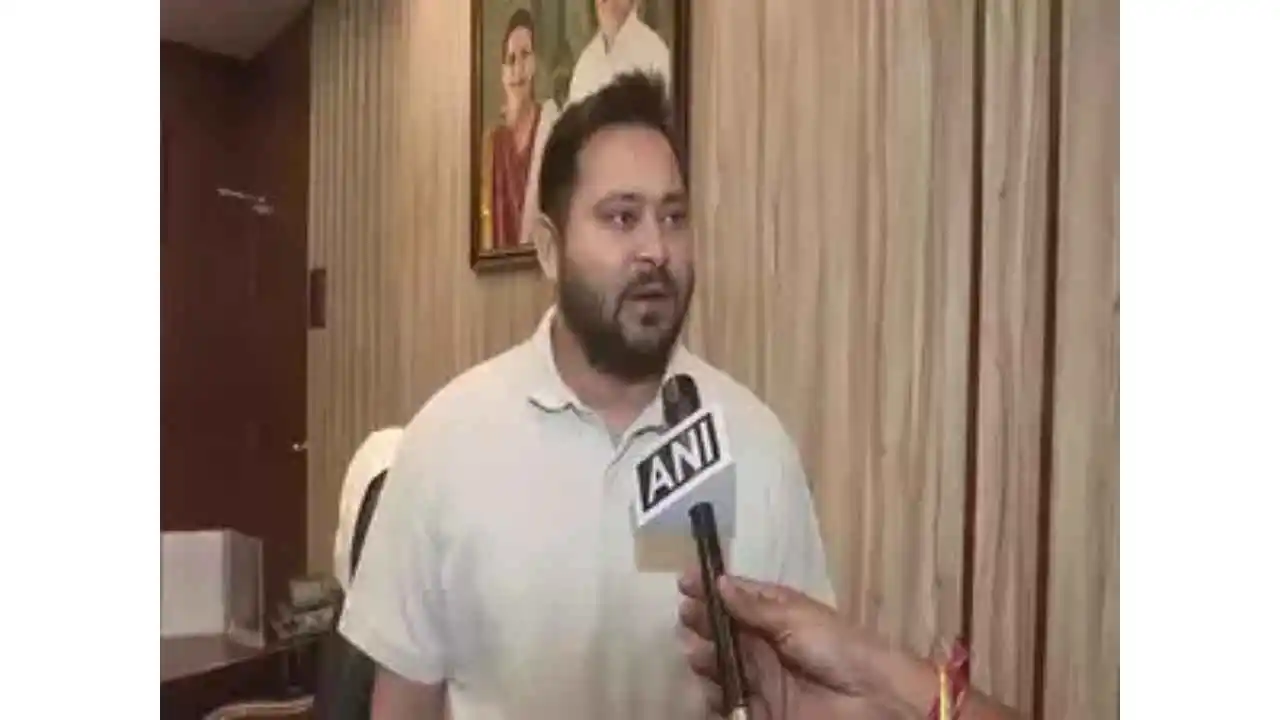
After the first phase of the Lok Sabha election got completed, Rashtriya Janata Dal (RJD) leader Tejashwi Yadav on Saturday took a dig at the Bharatiya Janata Party and said that the BJP’s 400 paar film has become a super flop on the first day itself. The RJD leader told that the media that there is no competition in the first phase of the elections as Bihar will give shocking results this time.
Yadav added that the Mahagathbandhan is winning all 4 seats in the first phase. He said the INDIA Bloc had held block wise meetings and the feedback that has come is very good that the BJP’s 400 paar film has flopped on day 1 of the Lok Sabha elections. He said the people of Bihar are aware and will teach BJP a lesson.
Tejashwi Yadav said there is no competition in the first phase. He said the people of Bihar will give shocking results this time. He added the BJP government has not done anything for the people of Bihar. He said the promises made by Modi ji in 2014 and 2019 were not fulfilled. Yadav added the public is tired of BJP’s statements and false promises. He said the opposition has promised that they will give a special package to Bihar along with special status.
Tejashwi Yadav said today the rally is with Rahul Gandhi ji in Bhagalpur. The entire INDIA Bloc and the Mahagathbandhan are working together. The RJD leader pointed out that unemployment is the biggest issue in Bihar. He said other important issues being faced by the people of Bihar are poverty, inflation, investment in the state. He said Migration and floods are also issues which need to be looked at. He added the people of BJP are very worried. He said the people of BJP say that they will abolish the Constitution. He said those who destroy the Constitution will themselves be destroyed.
2024 Lok Sabha Elections
Prime Minister Narendra Modi takes dig at Rahul Gandhi, says like Amethi, Congress will lose its ground from Wayanad also
PM Modi is currently on a visit to Maharashtra for election campaigning, and is campaigning for Mahayuti’s candidates from the parliamentary seat of Nanded Prataprao Patil Chikhlikar.
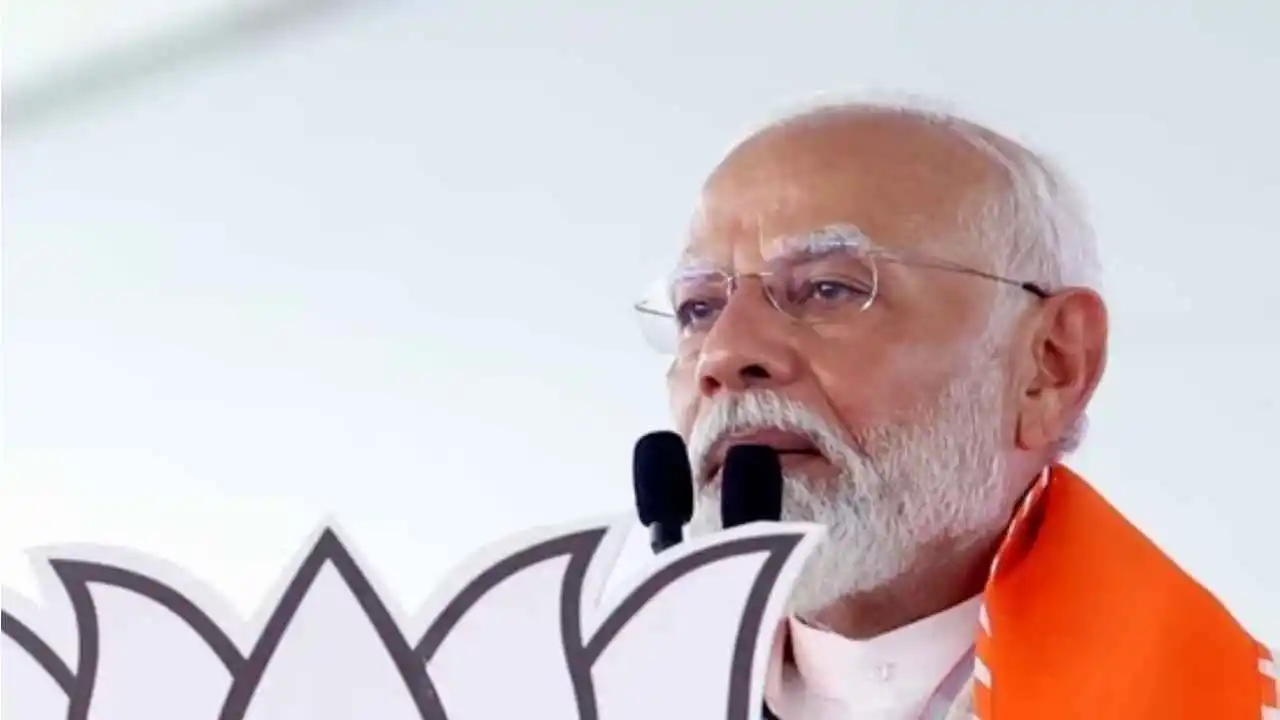
Prime Minister Narendra Modi on Saturday made a prediction and said Congress leader Rahul Gandhi will be driven away from his parliamentary constituency Wayanad and the party will have to find another safe seat for him. PM Modi, at a rally in Maharashtra’s Nanded, said Rahul Gandhi was chased away from Amethi by BJP leader Smriti Irani. PM Modi is currently on a visit to Maharashtra for election campaigning, and is campaigning for Mahayuti’s candidates from the parliamentary seat of Nanded Prataprao Patil Chikhlikar.
The Prime Minister said Congress ke shehzade, unhe bhi Wayanad mein sankat dikh raha hai…Jaise Amethi se bhagna pada, aap maan ke chaliye wo Wayanad bhi chodenge… (The Prince of Congress is facing a danger in Wayanad. Like he was made to escape Amethi, believe me, he will have to leave Wayanad as well).
PM Modi added Kerala Chief Minister Pinarayi Vijayan has blasted Congress leader in such a language that even he did not use for them. He said he is sure Congress will look for another safe seat for its Shahjada after voting in Wayanad is over. He claimed that in the first phase of the Lok Sabha elections, the people of the country voted for the BJP-led NDA. PM Modi said the INDIA bloc partners were fighting each other for 25 percent seats. He said if this is the situation now, what will they do after the election?
PM Modi addressed all the workers and leaders of other parties and said even if they felt that they are going to lose the elections then why should they work hard- he said they should work hard for democracy. Aaj nahin toh kal, kal nahin toh parso, parso nahin toh narso, arey kabhi to mauka aega (if not today, tomorrow, day after tomorrow, someday, you may get a chance).
-
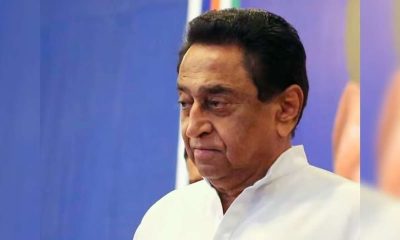
 2024 Lok Sabha Elections22 hours ago
2024 Lok Sabha Elections22 hours agoDeserted by key supporters, the Kamal Nath story looks set to wind to an end in Chhindwara
-

 Entertainment23 hours ago
Entertainment23 hours agoAditya Roy Kapur, Sara Ali Khan’s Metro In Dino to release this November
-
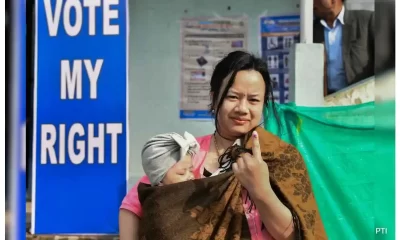
 2024 Lok Sabha Elections24 hours ago
2024 Lok Sabha Elections24 hours agoLok Sabha Elections 2024: Nearly 40% voter turnout till 1pm
-
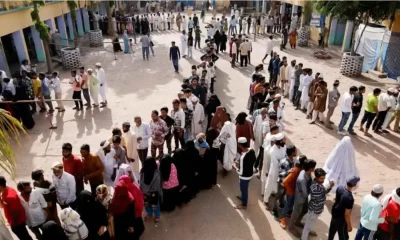
 2024 Lok Sabha Elections20 hours ago
2024 Lok Sabha Elections20 hours agoLok Sabha Elections: Voter turnout 62.02% in Tamil Nadu till 5pm
-

 Featured22 hours ago
Featured22 hours agoNima Sulaiman joins HiLITE Group Board, her father gifts her a Porsche
-

 Food22 hours ago
Food22 hours agoSocial media users stumped after food vlogger makes blue-coloured ghee rice, video viral
-

 Cricket news4 hours ago
Cricket news4 hours agoIPL 2024: Lucknow Super Giants beat Chennai Super Kings by 8 wickets
-

 Trending21 hours ago
Trending21 hours agoRanveer Singh reacts to his viral deepfake video promoting political party



